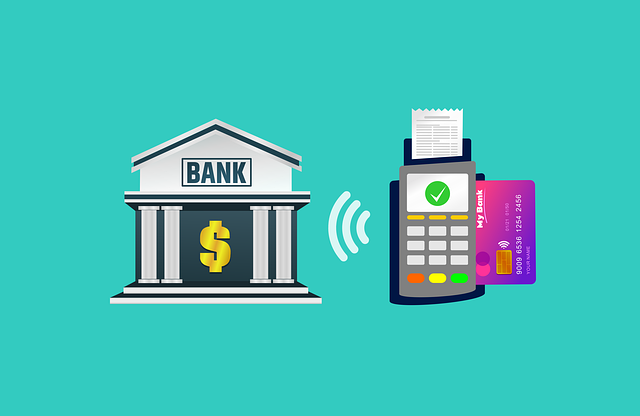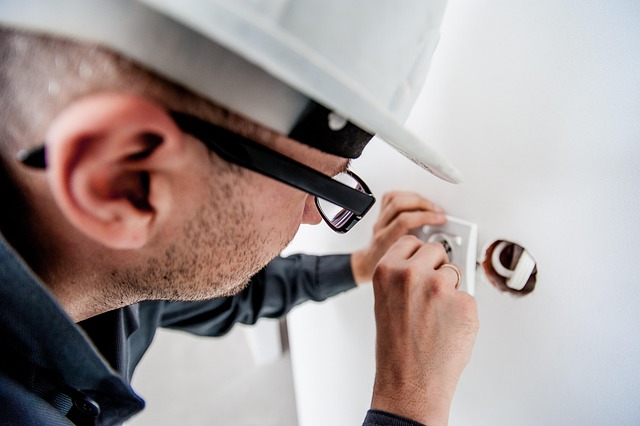Credit repair involves specialized professionals (Specialists/Agencies) who help improve individual credit scores and financial health. Traditional methods are meticulous, time-consuming, and costly, requiring report scrutiny, error dispute, and record-keeping. AI is revolutionizing credit repair with speed, efficiency, and personalized strategies, enhancing transparency and saving time. AI platforms offer cost-effective subscription models while human specialists provide tailored, complex case strategies. Choosing between them depends on urgency, budget, and tech comfort.
“Uncertain about where to begin improving your credit score? The world of credit repair can be overwhelming, but understanding the options is key. This article delves into the ongoing debate between traditional credit repair methods and the emerging role of AI in this domain.
We explore how a credit repair specialist or agency assists with intricate scoring systems, and what makes AI-driven services appealing. From cost comparisons to effectiveness, we guide you through choosing the best approach for your unique needs, helping you take control of your financial future.”
- Understanding Credit Repair: The Role of a Specialist and Agency
- Traditional Credit Repair Methods: A Step-by-Step Guide
- Introduction to AI in Credit Repair: Benefits and Capabilities
- Comparing AI vs Traditional Repair: Effectiveness and Costs
- Choosing the Best Credit Repair Approach for Your Needs
Understanding Credit Repair: The Role of a Specialist and Agency

Credit repair involves a specialized process aimed at improving an individual’s credit score and overall financial health. A credit repair specialist or agency plays a pivotal role in this journey, offering expert guidance and services to navigate the complex landscape of credit reporting. These professionals are well-versed in understanding the factors influencing credit scores, such as payment history, debt levels, length of credit history, types of credit used, and any negative items on the report.
A Credit Repair Specialist or Agency provides a range of services, including dispute resolution with credit bureaus, correcting errors, removing inaccurate information, and negotiating with creditors. They help individuals develop strategic plans to manage debt, improve payment habits, and establish positive financial behaviors. While traditional credit repair methods rely on manual processes and individual efforts, AI-powered platforms are now emerging as game-changers. These innovative systems utilize advanced algorithms to streamline credit repair by analyzing vast amounts of data, automating tasks, and offering personalized recommendations, all while keeping the user’s financial information secure.
Traditional Credit Repair Methods: A Step-by-Step Guide

Traditional credit repair involves a series of meticulous steps that require patience and dedication. It begins with obtaining your credit reports from the major bureaus, which often involve paying a fee to each agency. These reports are then meticulously reviewed for errors, inaccuracies, or fraudulent activities. Once identified, you dispute these issues directly with the creditors or reporting agencies, providing supporting documentation where necessary.
This process can be time-consuming and requires constant follow-up. Credit repair specialists may also negotiate with creditors on your behalf to settle debts or remove negative items from your report. Throughout this journey, maintaining accurate records and staying organized is paramount. While traditional methods rely on manual effort and human intervention, they offer the advantage of personalized attention and a thorough understanding of your unique financial situation.
Introduction to AI in Credit Repair: Benefits and Capabilities

Artificial Intelligence (AI) is transforming various industries, and credit repair is no exception. AI-powered tools and platforms are now available to assist individuals in enhancing their credit scores and managing their financial health. These innovative solutions offer a range of benefits over traditional credit repair methods. One of the key advantages is speed and efficiency; AI algorithms can quickly analyze vast amounts of data, identify errors or discrepancies in credit reports, and provide actionable insights for improvement. This enables credit repair specialists to take informed decisions, saving time and resources.
Additionally, AI enhances accuracy and personalization. By learning from vast datasets, these systems can predict credit behavior and tailor strategies to individual needs. They can detect patterns that might be missed by humans, ensuring more precise credit score repairs. Moreover, AI-driven credit repair services often provide transparency through clear communication of the repair process, potential outcomes, and associated fees, making it easier for clients to understand and trust the journey towards better financial standing.
Comparing AI vs Traditional Repair: Effectiveness and Costs

When comparing AI credit repair to traditional methods, one key aspect to consider is effectiveness. AI-driven platforms utilize advanced algorithms and machine learning capabilities to analyze financial data and identify areas for improvement. This technology can often pinpoint problematic items that might be missed by human specialists. Additionally, AI systems can provide personalized recommendations tailored to an individual’s unique credit profile, enhancing the likelihood of successful score repair.
Cost-wise, traditional credit repair agencies typically charge a flat fee or a percentage of the total debt for their services. This method can be expensive, especially if multiple agency partnerships are required. In contrast, AI platforms often offer subscription-based models with transparent pricing structures. While initial setup costs may apply, ongoing access to tools and support is usually more budget-friendly, making AI an attractive option for those looking to repair their credit score efficiently without breaking the bank.
Choosing the Best Credit Repair Approach for Your Needs

When deciding between AI credit repair and traditional methods, understanding your unique needs is paramount. Each approach has its strengths and weaknesses, catering to different scenarios. If you’re tech-savvy and value efficiency, AI-driven credit repair could be ideal. These platforms often provide accessible, data-driven solutions, allowing users to monitor progress in real-time. They typically offer competitive pricing structures, with some even charging per successful outcome rather than a flat fee.
On the other hand, traditional credit repair agencies excel in personalized service. A specialist will thoroughly review your report, disputing inaccurate items and negotiating with creditors. This method ensures human oversight and expertise but might be pricier. It’s beneficial for complex cases where a dedicated professional can offer tailored strategies. Ultimately, the best choice depends on factors like urgency, budget, and comfort with technology, ensuring you receive the most suitable credit repair services.







